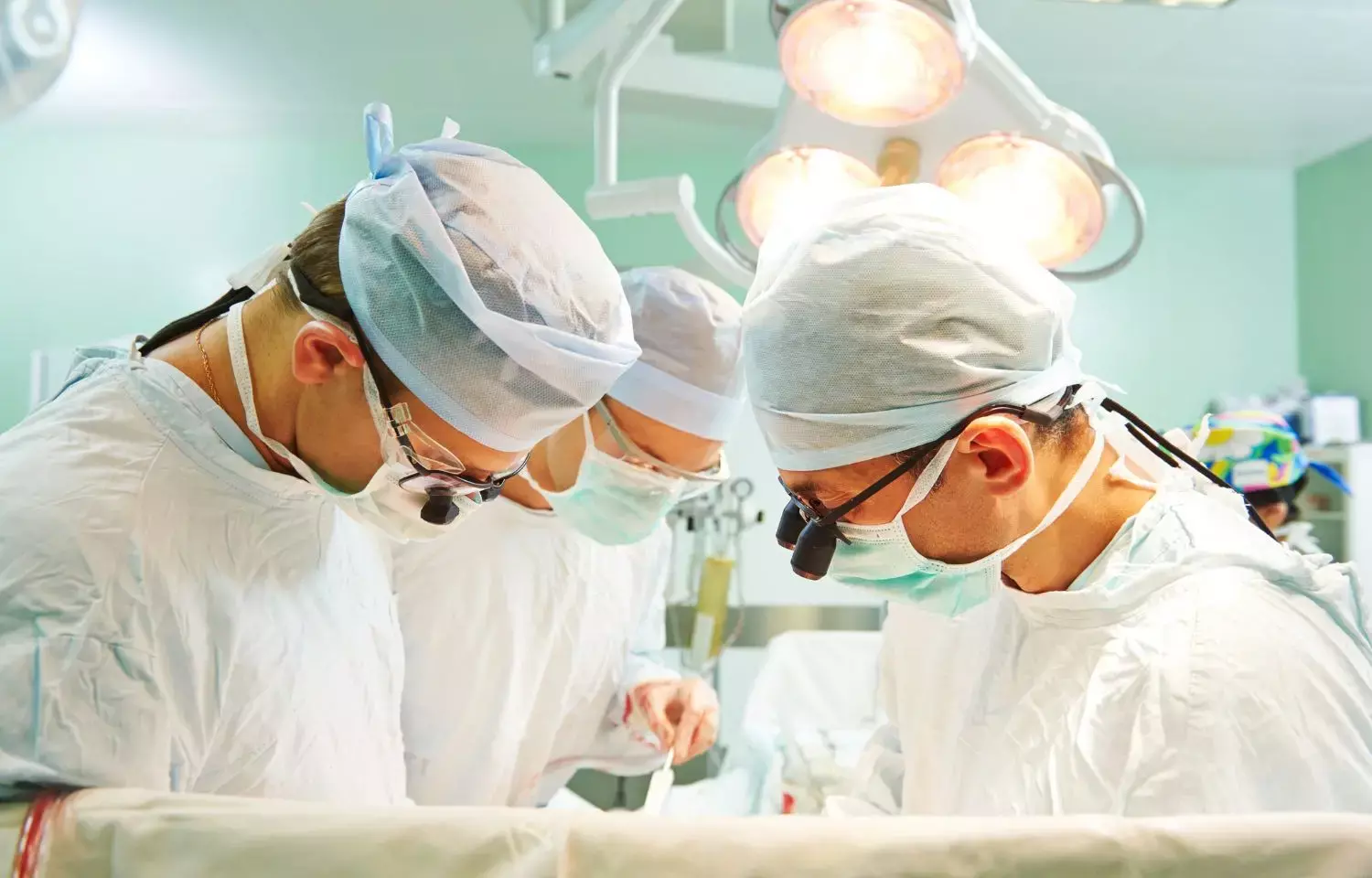- Home
- Medical news & Guidelines
- Anesthesiology
- Cardiology and CTVS
- Critical Care
- Dentistry
- Dermatology
- Diabetes and Endocrinology
- ENT
- Gastroenterology
- Medicine
- Nephrology
- Neurology
- Obstretics-Gynaecology
- Oncology
- Ophthalmology
- Orthopaedics
- Pediatrics-Neonatology
- Psychiatry
- Pulmonology
- Radiology
- Surgery
- Urology
- Laboratory Medicine
- Diet
- Nursing
- Paramedical
- Physiotherapy
- Health news
- Fact Check
- Bone Health Fact Check
- Brain Health Fact Check
- Cancer Related Fact Check
- Child Care Fact Check
- Dental and oral health fact check
- Diabetes and metabolic health fact check
- Diet and Nutrition Fact Check
- Eye and ENT Care Fact Check
- Fitness fact check
- Gut health fact check
- Heart health fact check
- Kidney health fact check
- Medical education fact check
- Men's health fact check
- Respiratory fact check
- Skin and hair care fact check
- Vaccine and Immunization fact check
- Women's health fact check
- AYUSH
- State News
- Andaman and Nicobar Islands
- Andhra Pradesh
- Arunachal Pradesh
- Assam
- Bihar
- Chandigarh
- Chattisgarh
- Dadra and Nagar Haveli
- Daman and Diu
- Delhi
- Goa
- Gujarat
- Haryana
- Himachal Pradesh
- Jammu & Kashmir
- Jharkhand
- Karnataka
- Kerala
- Ladakh
- Lakshadweep
- Madhya Pradesh
- Maharashtra
- Manipur
- Meghalaya
- Mizoram
- Nagaland
- Odisha
- Puducherry
- Punjab
- Rajasthan
- Sikkim
- Tamil Nadu
- Telangana
- Tripura
- Uttar Pradesh
- Uttrakhand
- West Bengal
- Medical Education
- Industry
CABG Potentially Beneficial to Patients Over Age 80 with Reasonable Surgical Risk

Patients over age 80 are considered high-risk candidates for coronary artery bypass grafting, not only because of normal wear and tear on the body, but also because of comorbidities and risks of complications after surgery. No hard-and-fast guidelines are available to assess the risks and benefits for octogenarians. Patients and physicians often choose not to proceed with surgery, and that decision carries its own risks and disadvantages.
A new retrospective study from Mayo Clinic finds that, although there's a higher surgical risk for patients over age 80, coronary artery bypass grafting may be associated with favorable outcomes and increased long-term survival. Further research is needed to identify patient groups that may benefit most from surgical revascularization, according to an article published in Mayo Clinic Proceedings.
Researchers reviewed case histories for 1,283 patients who were older than age 80 and underwent primary isolated coronary artery bypass grafting at Mayo Clinic in Rochester between Jan. 1, 1993, and Oct. 31, 2019. Median survival time was 7.6 years, compared with six years for age- and sex-matched octogenarians in the general U.S. population.
"Our results show that coronary artery bypass surgery can be beneficial for patients over age 80," says Kukbin Choi, M.D., a Mayo Clinic clinical fellow in Cardiovascular Surgery and the study's first author. "The key is to carefully identify patients who can most benefit from the procedure. That's what future research can help with: to identify subgroups of patients who can most benefit."
The patients' survival rate was 90.2% at one year, 67.9% at five years, 31.1% at 10 years and 8.2% at 15 years, according to the study. The surgical mortality rate was 4%, but it declined significantly during the 26-year study period. Mortality in the last three years of the study period was 1.6%. Risk factors associated with reduced survival time included advanced age, diabetes mellitus, smoking history and chronic lung disease.
Just over 56% of the surgeries were elective procedures, 40% were performed in urgent situations and 3.8% were emergencies.
"The longer median survival in octogenarians undergoing surgery and the relatively low rates of complications observed in our study imply that with tailored surgery candidacy and consideration of specific high-risk factors, coronary artery bypass grafting may be an important treatment strategy for those patients with multivessel coronary artery disease," says Dr. Choi.
Reference:
Coronary Artery Bypass Grafting in OctogenariansdRisks, Outcomes, and Trends in 1283 Consecutive Patients Kukbin Choi, MD; Chaim Locker, MD; Benish Fatima, MD; Hartzell V. Schaff, MD; John M. Stulak, MD; Brian D. Lahr, MS; Mauricio A. Villavicencio, MD; Joseph A. Dearani, MD; Richard C. Daly, MD; Juan A. Crestanello, MD; Kevin L. Greason, MD; and Vishal Khullar, MBBS
Dr Kamal Kant Kohli-MBBS, DTCD- a chest specialist with more than 30 years of practice and a flair for writing clinical articles, Dr Kamal Kant Kohli joined Medical Dialogues as a Chief Editor of Medical News. Besides writing articles, as an editor, he proofreads and verifies all the medical content published on Medical Dialogues including those coming from journals, studies,medical conferences,guidelines etc. Email: drkohli@medicaldialogues.in. Contact no. 011-43720751


